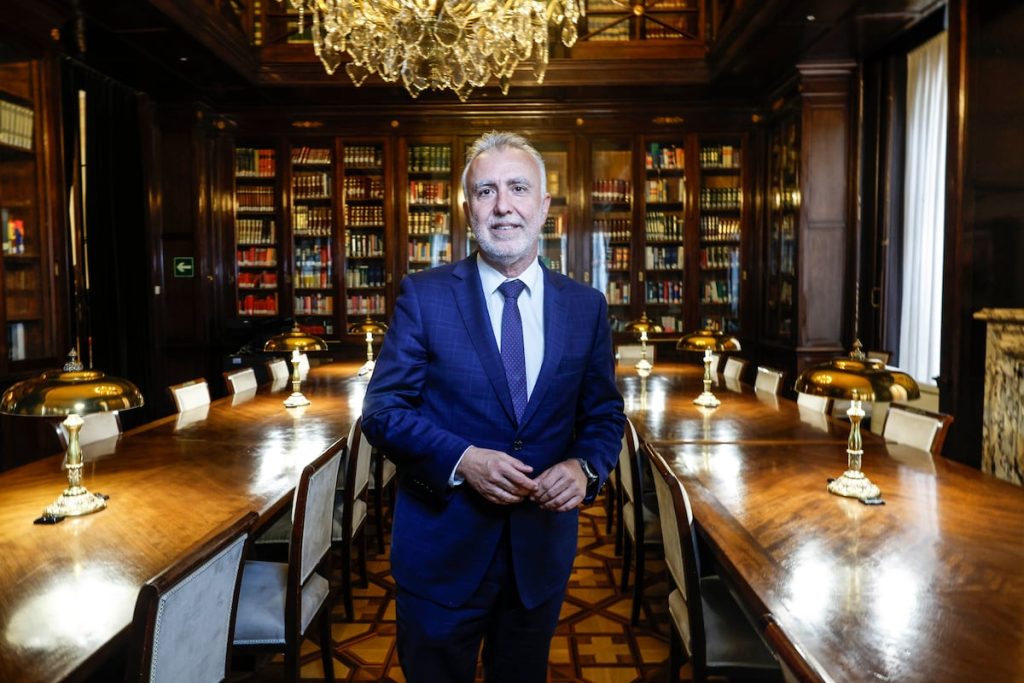Angel Victor Torres assumed the position of Minister of Territorial Policy and Democratic Memory in November, shortly after the PSOE lost six regional governments (seven including Cantabria, where they governed with the PRC) including their own in the Canary Islands, following the elections on May 28 and the initial agreements between the PP and Vox. The far-right party demanded the repeal of regional memory laws from the Popular Party and has begun to collect their debts. Angel Victor Torres, a philologist and former high school teacher, opposes the misinformation surrounding the memory legislation, stating that it is for all victims, though those on the winning side have already been exhumed. Over 13,600 remains of repressed individuals have been recovered since 2000, with a promise to continue until all are exhumed.
Aragón has refused to negotiate through the mechanism of Article 33.2 of the Constitutional Court’s law, so the Minister plans to bring the issue to the Council of Ministers at the end of the month to appeal the law, with potential further steps to the European Court of Human Rights. The main argument for the appeal will be that the laws in question violate Article 10.2 of the Constitution, which mandates respect for human rights and agreements ratified by Spain. The government is also working on extinguishing the Franco Foundation, which engages in the glorification of the Franco regime, with efforts to expedite its closure underway.
The Minister is also focused on education and ensuring that the memory law is upheld in communities governed by the Popular Party, despite resistance from the far-right which views this as indoctrination. Historical ignorance among youth is a concern, with efforts needed to ensure that the system educates students about the repression of the past. The Minister acknowledges the challenges in ensuring compliance across autonomous communities, but remains committed to fighting for historical memory to be respected.
Negotiations are underway with various parties, including the PNV, over the return of disputed properties such as the Institute of Cervantes in Paris. Even with roadblocks from entities like the Ministry of Defense regarding the transfer of remains from the Alcázar in Toledo, the Minister remains focused on enforcing the democratic memory law. Despite the loss of territorial power by the PSOE in recent elections, the Minister attributes this to a need for party renewal, as seen in the recent Catalan elections, which had successful results following organizational changes. Addressing challenges from regions opposing policies like the mandatory distribution of migrant minors, the Minister remains skeptical of reaching agreements in the current political climate.
The Minister also addresses recent scandals involving individuals connected to the government in corrupt practices, underlining the importance of investigating and ensuring accountability. Reflecting on recent events within the party and the government, the Minister expresses hope for reduced polarization and a return to constructive dialogue in political discourse, emphasizing the need for responsible opposition and collaboration for the good of the country. With challenges ahead, the Minister remains focused on upholding the principles of democratic memory and ensuring justice and accountability within the government.


